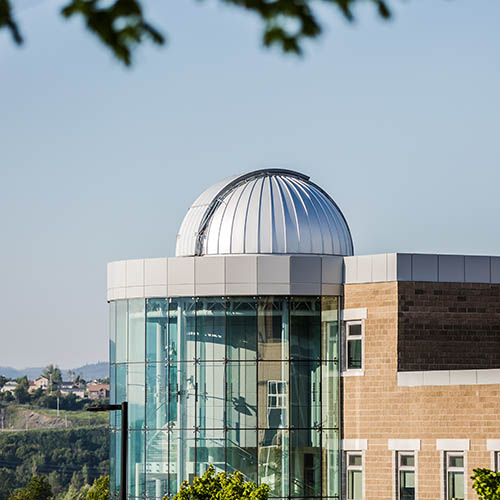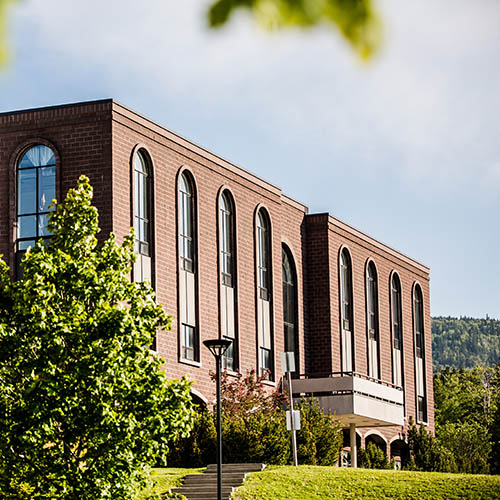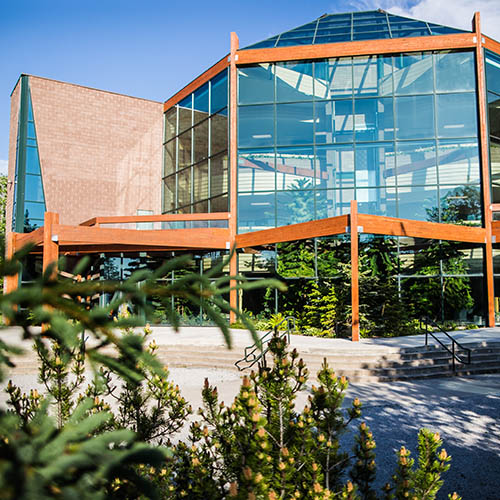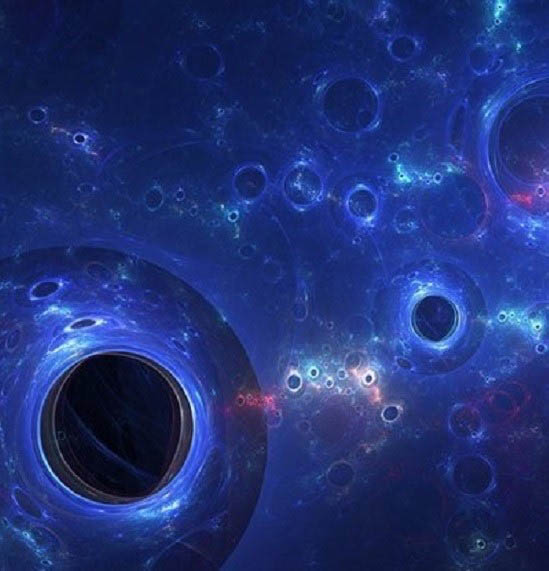Research Report: 2021
▼ Choose a report:

Powered by Research & Graduate Studies

Powered by Arts and Social Science

Powered by Fine Arts

Powered by Science and the Environment


Photo credit: https://www.sciencealert.com/dark-matter
Subatomic Physics is often called "Big Science," since it involves big teams united by ambitious goals working on mega projects. The Canada Foundation for Innovation (CFI) is based on the ideals of thinking big, and now support from CFI will enable physicists and students at Grenfell Campus, Memorial University, to hunt for Dark Matter in our Universe.
The Canadian team received $2,336,900 of CFI funding for the MOLLER Detector: Expanding our understanding of matter in the universe with a new, precision electron detector. Dr. Aleksandrs Aleksejevs and Dr. Svetlana Barkanova of Grenfell, MUN, are the grant co-recipients and a part of the MOLLER project: a world-class, international effort involving collaborators from 36 institutions, from the USA and Canada (the lead and founding countries), as well as Germany, Italy, France and Mexico.
The Right Honourable Prime Minister Justin Trudeau announced this, and other funding - to the tune of $518 million - on Wednesday. The funding aims to support the infrastructure needs of universities and research institutions across the country.
The MOLLER project will enable experiments that aim to measure the interaction properties between pairs of electrons down to separation distances of zeptometers, which is roughly a million times smaller than the size of the smallest atomic nucleus, to unprecedented accuracy. It is expected that completely new interactions may be found at such small distances, including those that couple to Dark Matter, and may explain some of the deepest unanswered questions in particle physics and cosmology.
The detector will be developed and build at the University of Manitoba, and the experiment will take place at the Thomas Jefferson National Accelerator Facility (JLab), a premier electron beam accelerator laboratory located in Newport News, USA, funded by the US Department of Energy. The Canadian team is the largest group in the MOLLER collaboration.
In addition to the team leads at the University of Manitoba and Drs. Aleksejevs and Barkanova at Grenfell Campus, Memorial University, the Canadian team includes colleagues from the University of Northern British Columbia and the University of Winnipeg.
Several of its members have been among the world leaders in the development of the needed technologies over three generations of previous experiments and, consequently, are work package leaders for many of the most important components of the experiment. The MUN group, with decades of experience in precision calculations, will provide the indispensable theory input.
"We are well-used to working remotely, collaborating with colleagues from all across the globe, so we are not particularly impacted by the pandemic," said Dr. Barkanova. "That is one of the many skills our students acquire - to coordinate and communicate with large groups, and our students have worked on the major international projects before without leaving our campus."
She added that most of their portion of this new funding will go to supporting students, "so we are looking for new talent."
Dr. Aleksejevs agreed, adding that physics is a great discipline offering many career opportunities. "Physics is providing a great foundation for many exciting careers in a knowledge-based economy," said Dr. Aleksejevs. "This funding will help our students learn complex problem-solving, coding, critical thinking, collaboration, and many other transferable skills."